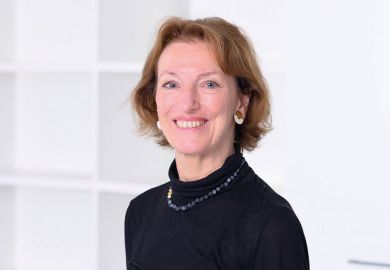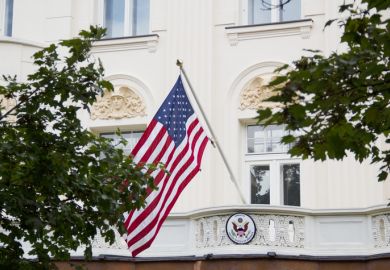The European Research Council (ERC) has announced the latest winners of its prestigious Advanced Grants, including 45 academics from the UK whose awards come with strings attached.
The European Union’s most illustrious fundamental research funder has filled out cheques worth €624.6 million (£525.1 million) for 253 winners, but it remains unclear whether those destined for UK-based researchers will be signed.
The Brexit deal agreed in December 2020 covers full participation in the ERC as part of the Horizon Europe programme, but the European commission has withheld final approval over ongoing disagreements with the UK on the deal’s Northern Ireland protocol.
The ERC has said that UK-based grant winners must migrate to an EU-based institution to receive the funding, although the UK government in Westminster has extended a grant guarantee for UK-based winners who wish to remain.
Some ERC grantees have already left the UK with their portable funding pots and one grantee said that he had been contacted by 10 EU-based institutions in a week since receiving his grant letter. The UK has been warned many could leave en masse.
“I’m going to wait until something is clarified,” said Saskia Hogenhout, a group leader at the independent John Innes Centre in Norwich, who won with a project on plant responses to sap-sucking insects. “At the moment I don’t see the point of bothering about it,” she said, referring to the rigmarole of upping sticks for the continent.
Researchers of any nationality are eligible to apply for ERC funding, but they must be based in a country associated with Horizon to take it up. Researchers based in Israel, Norway and Turkey are among those who can stay put and still be funded in this round.
Germany topped the chart of 21 countries hosting winners, counting 61 across the social, physical and life sciences. The UK’s 45 put it in second place, with the Netherlands and France following with 27 and 26 grantees apiece.
Women won a quarter of the grants in 2021, up from about 10 per cent in 2014.
Mariya Gabriel, the European commissioner for research, said that the funding “gives our talents the possibility to realise their creative ideas”. There were 1,735 applications in total, with an overall success rate of 14.6 per cent.
Register to continue
Why register?
- Registration is free and only takes a moment
- Once registered, you can read 3 articles a month
- Sign up for our newsletter
Subscribe
Or subscribe for unlimited access to:
- Unlimited access to news, views, insights & reviews
- Digital editions
- Digital access to THE’s university and college rankings analysis
Already registered or a current subscriber?








